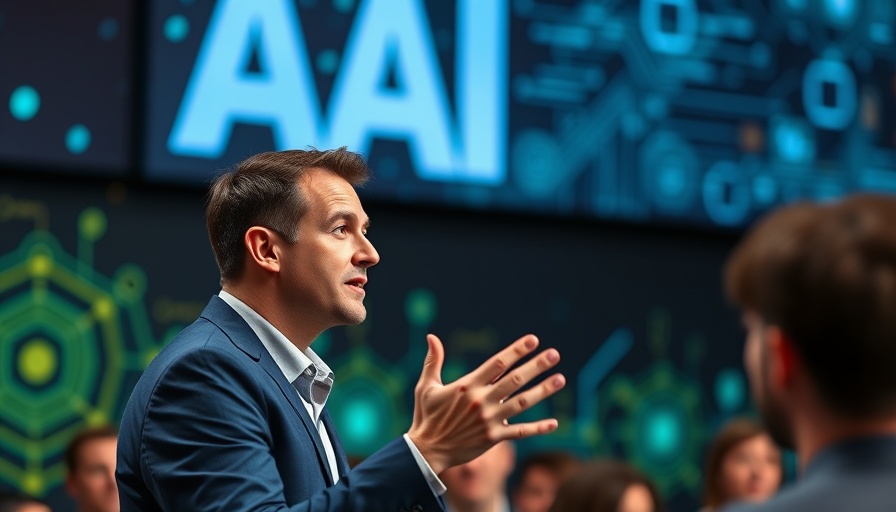
Meta's Aggressive Recruitment: A Battle for AI Talent
The landscape of artificial intelligence research is becoming increasingly competitive as major players like Meta and OpenAI vie for the best talent in Silicon Valley. Recently, OpenAI's chief research officer, Mark Chen, expressed strong emotions following Meta's successful recruitment of senior OpenAI researchers. In a dramatic internal memo, he conveyed feelings akin to a home invasion, reflecting the severity of the situation. Chen's memo reveals not only the stakes involved but also the broader implications for the tech industry.
Why This Talent War Matters
The race for top AI talent is not merely a corporate rivalry; it has significant repercussions for the development and ethical deployment of AI technologies. As companies like Meta offer lucrative packages—including reported signing bonuses of up to $100 million—this talent war raises fundamental questions about how technology will be shaped. Mark Zuckerberg’s strategy of reaching out directly to potential recruits suggests that this battle could result in a consolidation of resources and knowledge within fewer organizations, ultimately impacting innovation across the board.
The Future of AI Research Careers
As these tech giants ramp up their recruiting efforts, the future of research careers in AI may also change dramatically. OpenAI's response to this crisis involves recalibrating compensation and innovating recognition methods for its researchers. This proactive approach indicates that companies must adapt quickly to retain their workforce against offers that may seem too alluring to refuse.
Counterarguments: Ethical Considerations
While the recruitment efforts are portrayed as market competition, ethical concerns arise regarding the aggressive tactics employed by companies like Meta. Some argue that the focus on monetary incentives can lead to a toxic environment, where employees prioritize financial gain over innovation and collaboration. OpenAI has maintained that it values fairness, which could set a precedent for ethical hiring practices in the tech industry.
Broader Industry Implications
The maneuvers of OpenAI and Meta reflect wider trends in the technology and AI sectors, where a few major players are gaining disproportionate influence over the direction of future technologies. This raises alarms regarding monopolization and equity, as the barriers to entry for new startups become even higher. The resulting concentration of talent within a few organizations may stifle diversity in thought and reduce varied innovations.
What AI Professionals Should Consider
For AI professionals contemplating job offers in this heated market, several factors should be weighed carefully: remuneration packages, company culture, and career growth potential. In his memo, Chen encourages employees to stay informed and consider the bigger picture in such critical decisions. With the tide shifting rapidly, being informed not just about the immediate benefits but about long-term implications is vital.
A Call for Balanced Perspectives
As the industry evolves, a balanced approach to recruitment strategies could benefit all parties involved. OpenAI's leadership is portraying a commitment to its workforce and encourages dialogue among its researchers. Meanwhile, Meta's high-stakes offers bring to light the need for fair competition that also respects employees' career commitments and personal values.
Concluding Thoughts
The ongoing battle between Meta and OpenAI for top talent illustrates a microcosm of the challenges facing the fast-paced world of AI development. This situation merits attention not only for its immediate corporate implications but also for the far-reaching effects on the technology landscape and society at large. As the competition intensifies, keeping abreast of these dynamics will be crucial for stakeholders throughout the industry.
 Add Row
Add Row  Add
Add 




Write A Comment